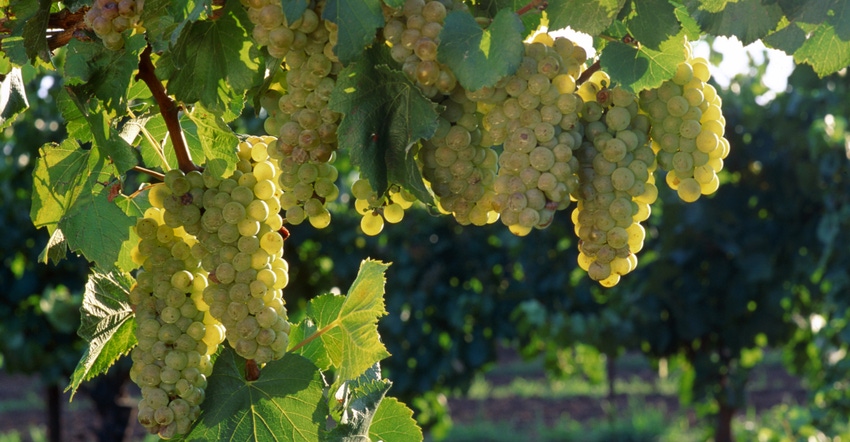April 9, 2021

The results of the 2020 Michigan Grape and Hop Inventory are promising for Michigan’s craft beverage industry. There are 3,375 wine grape acres in Michigan maintained by 257 farms, and 670 hop acres maintained by 68 farms. While the wine grape inventory shows an increase of 325 acres from the previous survey, this is the first year that hops have been included in the report.
Michigan grape and hop farmers were surveyed over several months to obtain acreage and variety data. The statistics are a part of the Small Fruit and Hops Inventory conducted by USDA’s National Agricultural Statistics Service for the Michigan State Horticultural Society. These results are a subset of the complete report, which is expected later this spring.
“The incredible growth of Michigan’s craft beverage industry has a lot to do with our talented, creative and driven entrepreneurs, but it’s also the result of producing unique, high-quality ingredients,” says Gary McDowell, director of the Michigan Department of Agriculture and Rural Development (MDARD). “Fresh water, rich soils and diverse microclimates create an ideal environment for growing robust, sophisticated inputs for every variation of craft beverage.”
Wine grape acreage increased both for the old-world-style vinifera grapes and the more cold-hardy hybrid varieties. Riesling continues to be the most planted wine grape in Michigan, and there are currently 670 Riesling acres in the state. Other grapes with notable acreage include Chardonnay, Pinot Gris, Pinot Noir and Cabernet Franc.
There are more than 35 different varieties of hops planted in Michigan, but Centennial, Cascade, Chinook and Cashmere have the most acreage per variety, accounting for 325 of the 670 acres.
The Small Fruit and Hops Inventory project was funded by a Specialty Crop Block Grant administered by MDARD and the USDA Agricultural Marketing Service.
For more information about Michigan’s craft beverage industry, including research, a craft beverage supplier marketplace, industry statistics and a map of craft beverage licensees, visit michigancraftbeverage.com.
Source: Michigan Craft Beverage Council, which is solely responsible for the information provided and is wholly owned by the source. Informa Business Media and all its subsidiaries are not responsible for any of the content contained in this information asset.
You May Also Like




